Trent Dillon, a Ph.D. student at the University of Washington in Seattle, will explore location-specific options and opportunities for the Makah Tribe in Neah Bay, Washington, to harness wave energy.
Water Power Technologies Office
June 30, 2021For the 2021 cohort of Oak Ridge Institute for Science and Education (ORISE) Marine and Hydrokinetic (MHK) Graduate Student Research Program Fellows, every day is an opportunity to seek scientific solutions among the waves. Trent Dillon, a Ph.D. student at the University of Washington in Seattle, will explore location-specific options and opportunities for the Makah Tribe in Neah Bay, Washington, to harness wave energy. Learn more about Trent's research topic and vision for an equitable energy future in the interview summary below.
How did you hear about the ORISE fellowship program?
I heard about the program through my advisor, Brian Polagye, who I work with in the University of Washington's Mechanical Engineering Department. He was involved in a renewable energy project on the Kvichak River in the village of Igiugig, Alaska, which inspired us to seek out similar coastal communities where we could have a significant impact.
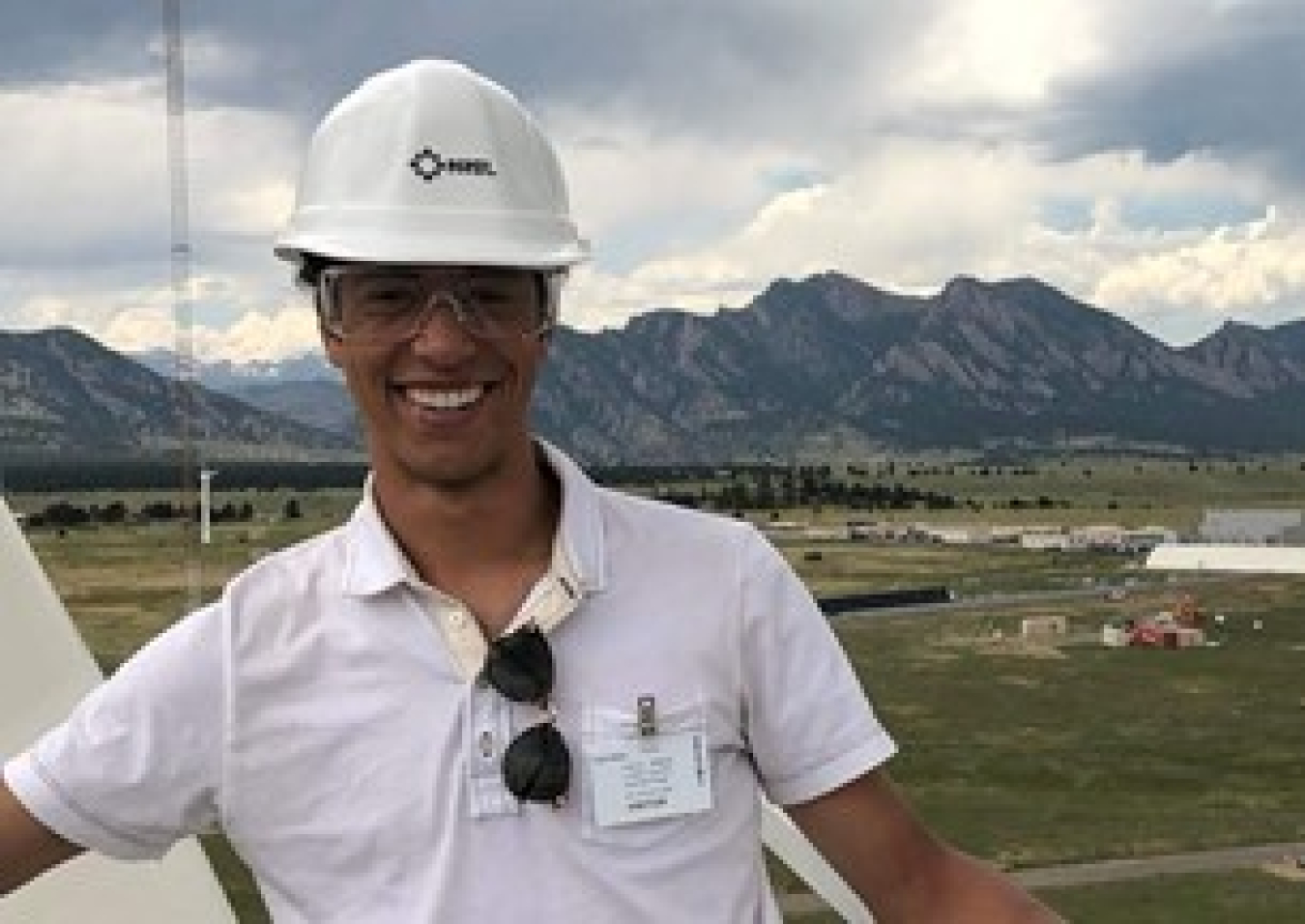
During his internship, Trent had the opportunity to stand on top of a wind turbine more than 250 feet above the ground at the National Renewable Energy Laboratory's National Wind Technology Center. Photo Courtesy of Trent Dillon.
What is your proposed research topic?
I'll be studying the potential benefits of harnessing wave energy to improve coastal resilience for the Makah Tribe, whose land is situated on the northwest corner of the Olympic Peninsula. My research supports their decision-making process as they consider steps like improving grid reliability, moving infrastructure away from the tsunami inundation zone, or electrifying the power system to reduce their dependence on diesel supplies.
How does your background prepare you to be an ORISE fellow?
I've completed two internships at the National Renewable Energy Laboratory, in which I developed software to analyze the cost and performance of wave energy systems. That same type of computational analysis can be applied here to see how wave energy technologies would theoretically perform at a community scale.
Also, on a personal level, I'm active in the campus group, Mechanical Engineering Students Against Racism, which aims to dismantle systems of oppression through community collaboration. I feel more prepared to do community-based project research after participating in conversations and collaborating with this student group.
What does a typical day look like for you?
I do a lot of sitting at home, coding, and sending emails, but I like to be active too. I've played a lot of ultimate frisbee over the years. I also began surfing back when I was 8 or 9 but stopped for several years, so I'm hoping to pick it back up again soon.
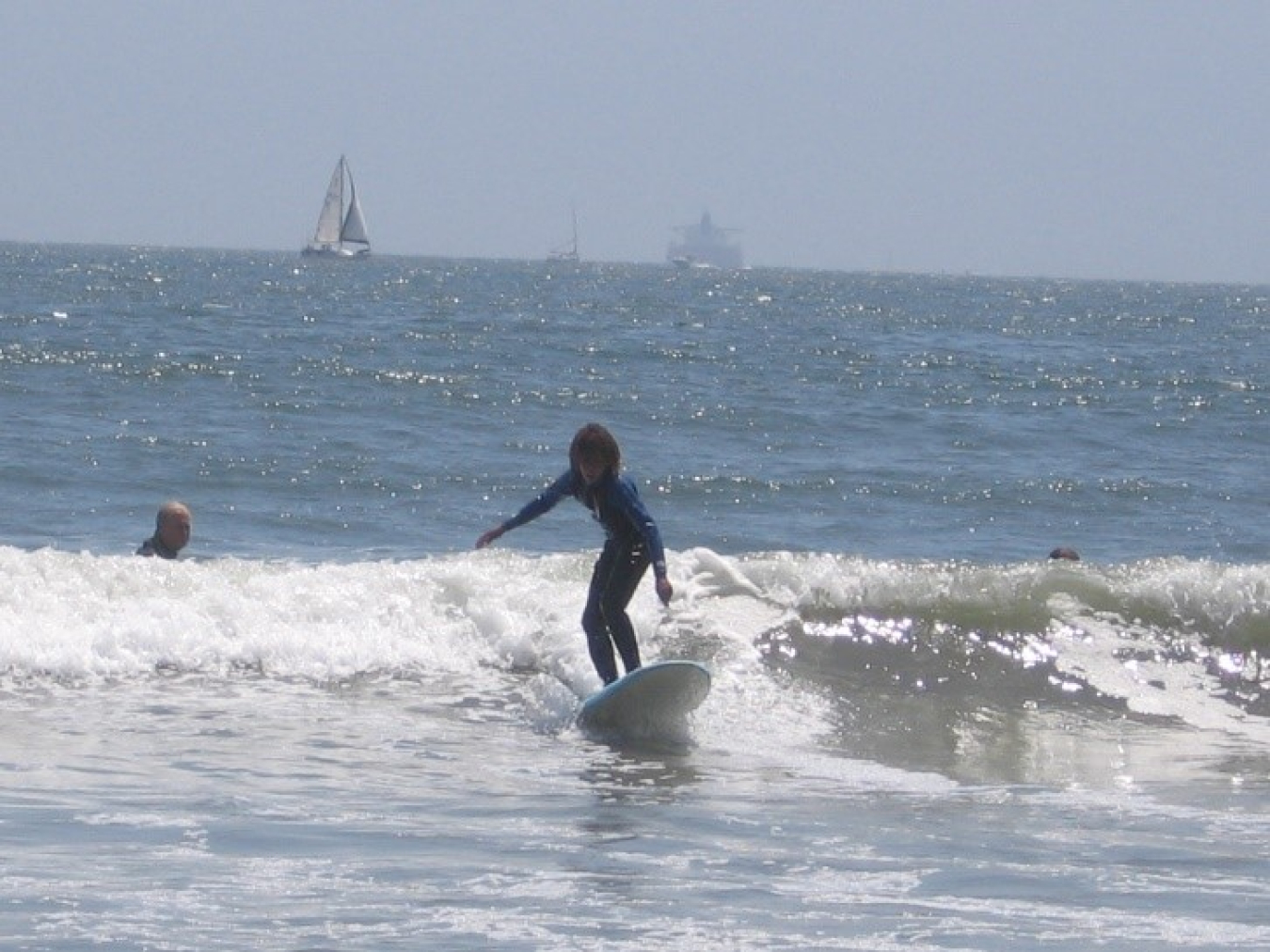
Trent Dillon, who first learned how to surf in Long Beach, California, in 2005, hopes to find time to enjoy the sport during his 2021 ORISE fellowship. Photo Courtesy of Trent Dillon.
What do you hope to get out of this fellowship?
I want to try to identify what the tribe's first step could be, or if there should even be a first step, in their journey toward using wave energy for a more resilient future. That may be overestimating what I can do during this time, but I believe I can provide a strong foundation of documented research, and more importantly relationships, related to the opportunities with wave energy. And on the personal side, I'm interested in learning more about how renewable technologies can be a liberating force for underrepresented communities.
What is your biggest dream for the future of clean energy in America?
I see a decentralized energy future that gives direct authority to the user. I've been reading up on energy democracy lately, so I think communities should have more authority, agency, and understanding when it comes to their power supply.
Learn about the other graduate students selected for the 2021 ORISE fellowship program.
-
 Trent Dillon, a Ph.D. student at the University of Washington in Seattle, will explore location-specific options and opportunities for the Makah Tribe in Neah Bay, Washington, to harness wave energy.
Trent Dillon, a Ph.D. student at the University of Washington in Seattle, will explore location-specific options and opportunities for the Makah Tribe in Neah Bay, Washington, to harness wave energy. -
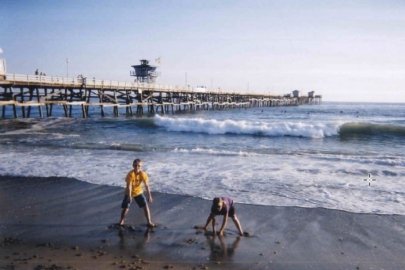 Michael Kelly, a Ph.D. student at the University of California, Berkeley, will assess how flexible-inflatable wave energy converters perform relative to their rigid counterparts when coupled with traditional, high-efficiency power take-off systems.
Michael Kelly, a Ph.D. student at the University of California, Berkeley, will assess how flexible-inflatable wave energy converters perform relative to their rigid counterparts when coupled with traditional, high-efficiency power take-off systems. -
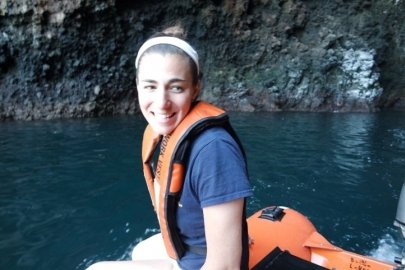 While working on master's and doctoral degrees at Oregon State University, Ali Trueworthy will develop a user-centered design methodology for high-performance wave energy devices during her fellowship.
While working on master's and doctoral degrees at Oregon State University, Ali Trueworthy will develop a user-centered design methodology for high-performance wave energy devices during her fellowship. -
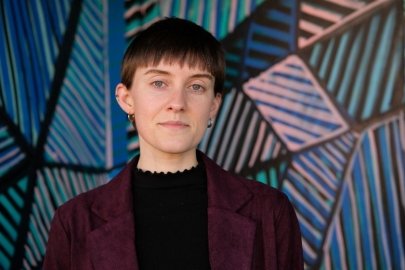 Katherine Van Ness will be leveraging computational modeling techniques to develop model simulations of laboratory-scale blade pitch control experiments.
Katherine Van Ness will be leveraging computational modeling techniques to develop model simulations of laboratory-scale blade pitch control experiments.

